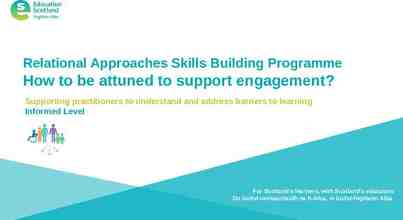Moving on (after diagnosis) – What next? Post Diagnosis Workshop 5
23 Slides581.38 KB

Moving on (after diagnosis) – What next? Post Diagnosis Workshop 5

Housekeeping Please be respectful of each other’s opinions Please do not use foul language Please mute your microphone if you have background noise – but unmute to join in conversations

Objective of today’s workshop o Providing you with a ‘tool kit’ to enable to move forward o Telling people about your diagnosis Positives and negatives Things to consider o Support available for you o Support for partners and families you

Telling people about your diagnosis Telling people that you are autistic can be a daunting prospect. Consider who you want to tell. You can choose who you disclose your diagnosis to, or you may choose not to tell certain people about your diagnosis It may be helpful to make a list of the advantages and disadvantages

Positives of telling others People who know about your diagnosis may be more understanding or empathetic to difficulties you face. People may understand you better once they know you are autistic You don’t have to try to hide your autism You may be part of encouraging others to learn more about autism – is this important to you?

Negatives of telling others You may worry you will be met with lack of understanding or prejudice from others It may be difficult to fit in with others People may ask inappropriate or insensitive questions Difficult to find the right time, place, opportunity, may keep ‘putting it off’

Things to consider If you choose to tell someone about your diagnosis you may wish to consider who tell and how you will tell them. you It can be helpful to explain what autism spectrum condition is and how it affects you individually. Give the person an opportunity to ask questions to help them understand the condition. https://www.autism.org.uk/about/what-is/asd.aspx

Things to consider Consider where and when you will tell the person. A quiet private space, at a time that you are both free and have time to discuss in full is best. Make it clear whether this is confidential information and who you are happy to know you have autism. If you do not want the person to tell anyone else, you need to explain this to them and why – this is OK.

Time to pause . Any questions? Any comments? Time to share.

Things to consider If you are not sure about whether to tell someone unfamiliar that you are autistic, you could ask for advice from a family member or friend who already knows about your diagnosis. If it doesn’t go well, or the person has a negative reaction, try not to take it personally. They may not know about the condition or may have misconceptions about autism.

Things to consider Focus on what you like about yourself, and positive reactions you have had. Just because one person had a negative reaction it does not mean that everyone will. Disclosure Videos www.youtube.com/watch?v OkEexU9hbmk www.youtube.com/watch?v -jTS38 t8w

Time to pause . Any questions? Any comments? Time to share

Support available to you Structured learning and one-to-one support oAspiration, OAADSS website www.oaadss.org.uk/ Benefits Advice oBBMH, Citizen’s Advice, OAADSS website and Oxfordshire Welfare Rights Social Groups oAspiration Café or Zoom, Connectivity ([email protected] Jill Oakes), Banbury Aspies Housing Support oConnection Support, Oxfordshire Mind Housing Adult Social Care oCare Act Needs Assessment Refer to handout for more information

Care Act Needs Assessment If you have support needs that require on-going weekly support, you may be entitled to a personal budget to pay for support. You will need to undergo a Social Care Act needs assessment with the local authority. A social worker will talk to you about your support needs and assess your eligibility for a personal budget. This can be arranged by contacting Oxfordshire’s Social and Health Care Team on 0345 050 7666. For more information about on eligibility and to request an assessment visit: https://www.oxfordshire.gov.uk/residents/getting-needs-assessment/m embers-public

Moving forward Accept the way your brain processes and responds to information is different Accept your difference and stop trying to be someone you aren’t (masking - which is exhausting) Avoid situations you don’t need to go to/do if it is difficult and not really necessary Find coping strategies for situations/events you can’t avoid

Moving forward Prioritise de-stressing time for yourself BE KIND TO YOURSELF Make reasonable adjustments where helpful (or ask for them) Recognise and use your strengths as much as possible (builds confidence and self-esteem)

Time to pause . Any questions? Any comments? Time to share.

Support for family and partners Acceptance by others o Supporting your partner to acknowledge that your condition is lifelong can often be difficult at times. o However, coping strategies can help which makes daily life less stressful for both you and your partner. For example, routines and agreed timetables can help, as can looking at how you communicate.

Support for family and partners Behaviour and Relationships Strategies o Your partner may have difficulties understanding you sometimes. o It can help to talk to your partner about any relationship problems you are having and explain your feelings in a calm, reasoned way using clear language. Oxfordshire Relate Centre, OX4 1EH - 01865 242 960 https://www.relate.org.uk/

Support for family and partners Talking to someone who understands o Autism is a complex condition, and it is important that support is informed and understanding of these complexities. o There are family groups in the area, and these can be very supportive. The benefit in talking to someone who understands should not be underestimated. Autism Family Support - 01844 338696 http://www.afso.org.uk/

Support for families Many autistic adults have partners and families. Some people manage relationships and family life without difficulties while others may need support at times. A support group for parents o www.parents-talking-aspergers.co.uk A friendly charity run by parents for parents/carers who are raising autistic children/young adults o http://oasisonline.org.uk/ Information, advice and support for adults caring for adults in Oxfordshire o www.carersoxfordshire.org.uk

Employment advice The work environment can be a difficult place at times, especially if you are autistic. There are lots of unwritten rules and office politics that may not be clear. Disclosing can help with making sure reasonable adjustments are met The National Autistic Society has advice on how to cope with interaction at work: https://www.autism.org.uk/about/adult-life/work.asp x

The End Any questions? Any comments? Time to share. Handout x 2






